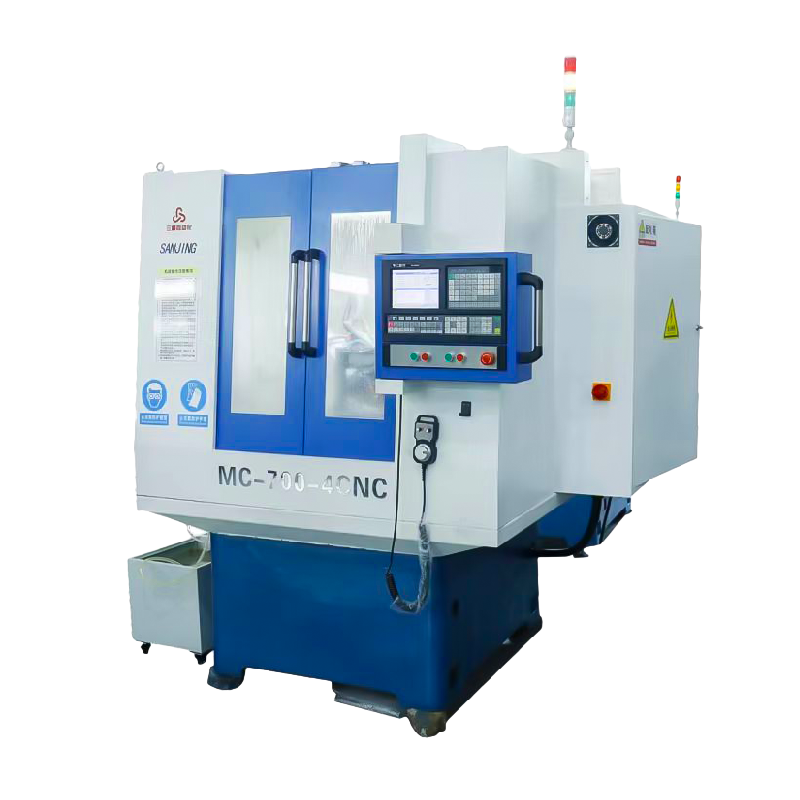Understanding Project Requirements and Machine Compatibility
Prototyping vs. Industrial-Scale Production
Choosing a CNC milling machine manufacturer begins with a clear understanding of your project's requirements. This involves determining whether you need the machine for prototyping or industrial-scale production. For prototyping, machines with flexibility and ease of use are crucial. For large-scale production, focus on machines with high throughput and durability. Different requirements call for different machine specifications, and understanding this will help in selecting the best supplier.
Future-Proofing Your Investment
Scalability and Flexibility
Investing in a CNC milling machine is not just about meeting current demands but also about anticipating future needs. The best manufacturers offer machines that are scalable and flexible, allowing for upgrades and adjustments as your factory's production needs evolve. Consider machines that can accommodate technological advancements and increased production capacities as your business grows.
Material Compatibility and Machine Capacity
Understanding Material Properties
CNC milling machines should align with the materials you plan to work with, whether it’s aluminum, steel, or composites. The machine’s spindle speed, torque, and motor power are critical specifications influenced by the material. For example, working with hard metals like titanium requires robust machines with high cutting torque, while softer materials like aluminum may require less power. Selecting a supplier that provides machines compatible with a variety of materials is crucial for optimal performance and flexibility.
Space Considerations and Machine Footprint
Adapting to Facility Constraints
Space is often a limiting factor in choosing a CNC milling machine. Consider the footprint of the machine in your factory space. It’s essential to assess if there is additional space for accessories and tools. If space is a constraint, compact machines that maintain power and efficiency without sacrificing performance are recommended. Also, consider the logistics of machine assembly and installation within your facility.
Precision and Complexity in Machining
Axes and Spindle Movement
The precision of a CNC milling machine is vital, especially for complex parts. Machines with multiple axes (4 or 5-axis) offer more precise and complex part machining capabilities. They allow for detailed work on intricate designs, making them suitable for industries like aerospace and medical devices. The best manufacturers provide machines that ensure precision through advanced spindle movement and cutting capabilities.
Technical Specifications and Performance Metrics
Evaluating Critical Parameters
When selecting a CNC milling machine, evaluate key technical specifications such as motor power, spindle speed, and torque. High-performance metrics are essential for efficient and precise machining. Additionally, consider table size, repeatability, and flexibility. Machines with larger tables are better suited for large components, while high repeatability ensures accuracy in mass production. Choose a supplier that meets these technical demands with innovative solutions.
Operator Experience and Automation Levels
Balancing Human Skills and Machine Intelligence
The level of automation in CNC milling machines varies. Machines with high levels of automation require less human intervention, reducing the potential for human error and increasing efficiency. Conversely, simpler machines may need skilled operators. Evaluate your team’s proficiency and choose a supplier that provides the right balance between automation and manual control. Training and support from the manufacturer can also enhance operational efficiency.
Material Selection and Impact on Machine Design
Design Specifications for Different Materials
Different materials influence the design and capabilities of CNC milling machines. Machines designed for lightweight materials may not perform well with harder materials. Analyze the material properties and select a machine with the appropriate design specifications, such as motor horsepower and spindle torque, to handle the materials used in your projects effectively. The best suppliers offer customizable solutions to fit varied material requirements.
Guide System Selection: Linear vs. Box
Speed vs. Rigidity
Choosing between linear motion (LM) guide systems and box guide systems affects the machine's performance regarding speed and rigidity. LM guide systems offer speed advantages but are typically suited for lighter applications. Box guide systems provide better rigidity and vibration control, making them ideal for heavy-duty machining tasks. Assess the nature of your projects to determine the most suitable guide system, and select a supplier with expertise in both systems.
CNC Control Systems and Operational Efficiency
Advanced Controls for Enhanced Productivity
CNC control systems play a crucial role in operational efficiency. Advanced control systems manage complex tasks with precision, reducing production downtime. Consider the number of axes the control system can manage, and ensure compatibility with existing systems for seamless integration. The best manufacturers provide user-friendly control interfaces that improve productivity and are backed by reliable technical support.
Boyue Provide Solutions
Boyue offers comprehensive solutions tailored to your CNC milling machine needs. Our machines are designed to meet the highest standards in precision, efficiency, and scalability, ensuring they fit seamlessly into your production line while accommodating future growth. With customizable options, we address specific material and project requirements, delivering machines that offer unmatched performance. Partner with Boyue for a reliable, long-term investment in quality CNC milling solutions, backed by exceptional support and expertise.
User hot search: best cnc milling machine
Post time: 2025-08-17 12:07:05


